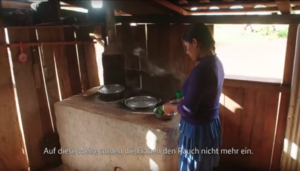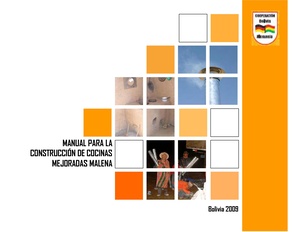Malena Cookstoves against Climate Change
Malena Cookstoves
Malena Cookstoves are improved cookstoves made out of unfired mud/clay bricks mixed with straw and dung. They have two cooking holes and a metal chimney. As compared to a traditional cookstove, these improved cookstoves decrease the amount of fuel (mostly firewood and dung) needed and also reduce indoor air pollution as most of the pollutants escape via the chimney.[1][2]
These stoves are expected to run for 5 years without any problems. After 5 years, the stoves could experience problems such as deterioration of the mud and blockage of the chimney with soot. Both of these problems can be fixed by the local promoter.[3]
Malena Cookstoves Design
For instructions on how to design the Malena Cookstoves, please see the publication (in Spanish) below:
Malena Stoves and Climate change
Malena cookstoves help to combat climate change as follows:
- With increased efficiency, this stove uses less firewood than a traditional stove.
- This stove also decreases around 85% of particulates and carbon monoxide. For more information about how particulates contribute to climate change, see the article: Energy Access and Climate Mitigation and Adaptation
This short video by the BMZ (German Federal Ministry for Economic Cooperation and Development) filmed in Bolivia also shows how Malena stoves can help to combat climate change.
Please watch the video (German version with Spanish interviews).
Further Information





















